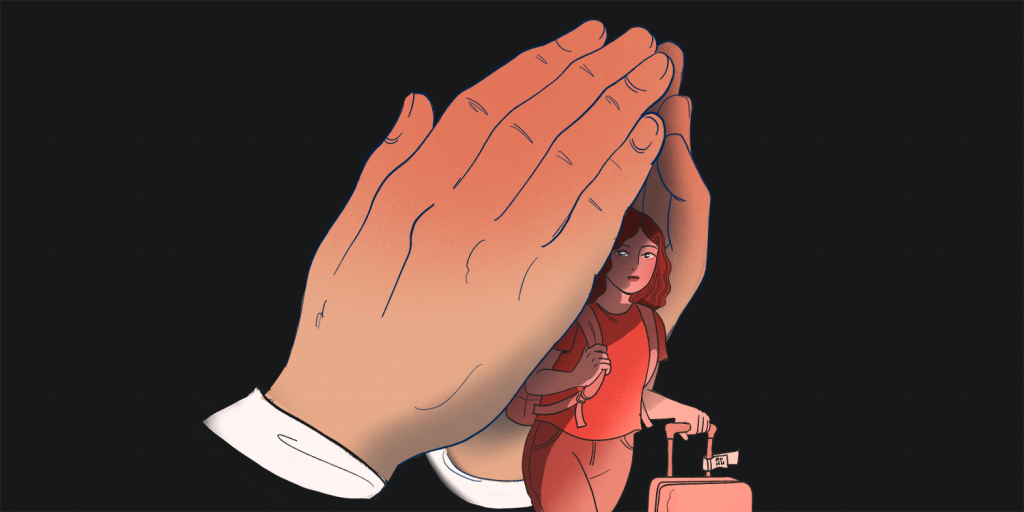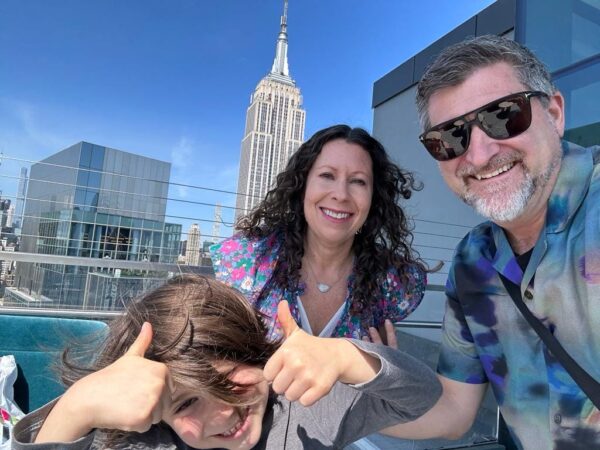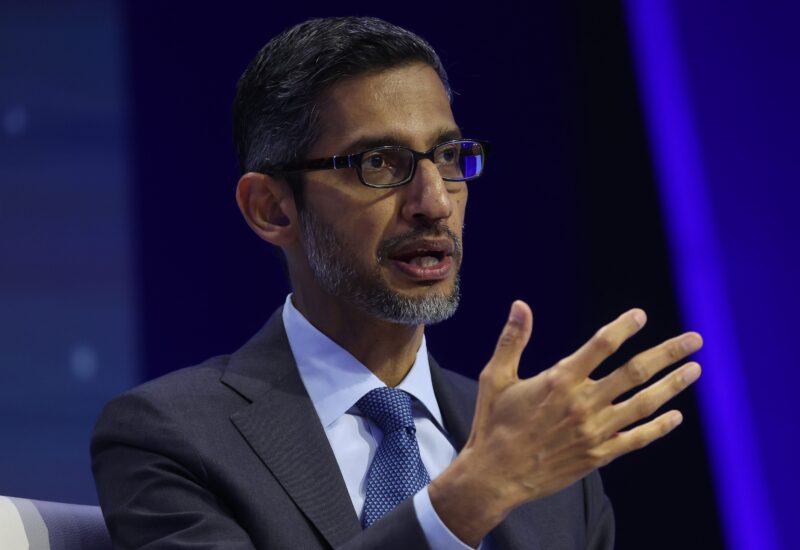- Before Roe v. Wade, a nationwide network of clergy helped women seeking abortion care.
- With the landmark ruling poised to fall, similar networks are being revitalized by religious leaders.
- One minister in Texas helps 20 people travel to New Mexico every two weeks for abortions.
Every two weeks, a group of 20 people board a flight in Dallas, Texas, escorted by a member of the clergy.
They head to Albuquerque, New Mexico, for a day trip to a clinic, where each person receives personalized reproductive care.
The group organizing and fundraising for the trips includes Christian ministers and Jewish rabbis, united in the common goal of getting people the care they need.
The people on the trips qualify by being below a certain income level. Some have never been on an airplane before. Most have jobs. Some are college students. Almost all have children.
Most get surgical abortions on the trip. At the end of the long day, they all fly home.
"The resources they have to get access to what I consider a fundamental right, to terminate a pregnancy and control their bodies, is limited by their position in society, which is why this whole thing is a war on the poor," Daniel Kanter, the senior minister and CEO of the First Unitarian Church of Dallas, told Insider.
Kanter organizes the trips along with other clergy members. Five years ago he helped found a multi-faith chaplaincy team, made up of Christian and Jewish clergy, to provide counseling to women at an abortion clinic in Dallas. But things changed last year when Texas passed an especially punitive law banning abortions after six weeks of pregnancy.
"SB8 changed almost everything about the chaplaincy," Kanter said. "Our patient load went from 100 patients a day to 30 patients a day, and 15 weren't eligible for an abortion procedure because they were more than 6 weeks pregnant. So we pivoted to a travel program."
As the Supreme Court appears poised to overturn Roe v. Wade, more and more faith leaders are working on ways to help people access the care they need. More models like Kanter's are popping up or in the works, as a network of religious leaders that helped women get abortions before Roe is being revitalized.
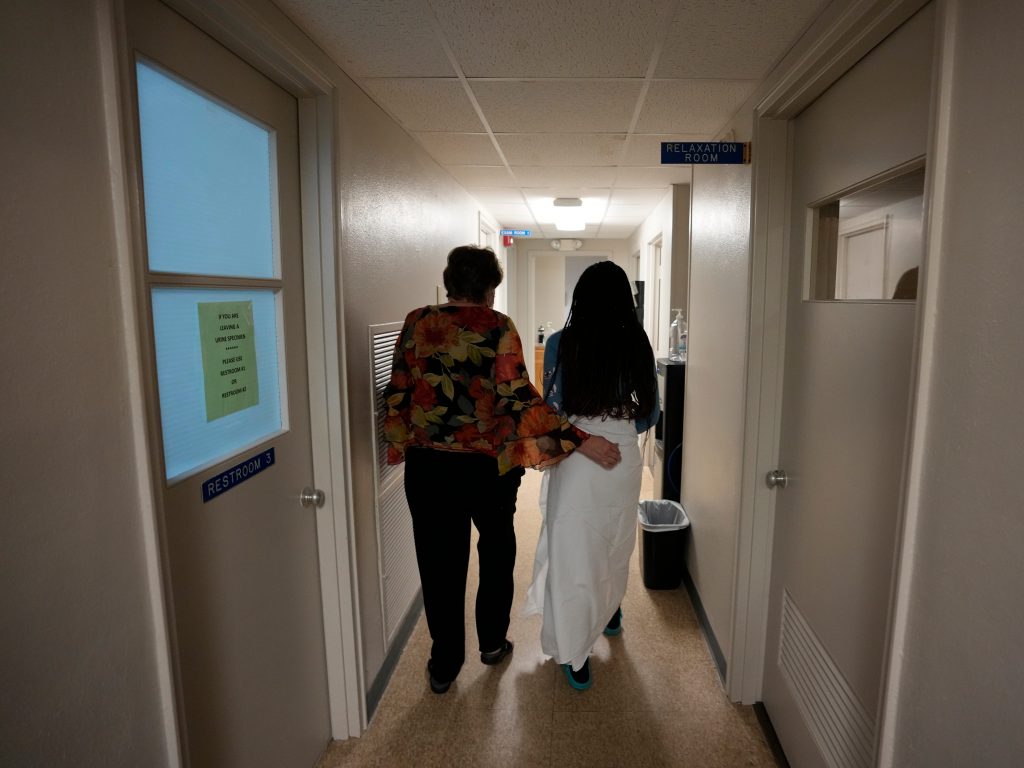
Religious leaders helped women get abortions before Roe
The Clergy Consultation Service was founded in 1967, six years before Roe, at a time when many states banned abortions. Rev. Finley Schaef, a Methodist minister in Manhattan, co-founded the group after a mother sought his help in obtaining an abortion for her teenage daughter.
The CCS grew to include more than 1,000 clergy members across 38 states. They helped about half a million people obtain safe abortions between 1967 to 1973, according to Katey Zeh, a reverend and CEO of the Religious Coalition for Reproductive Choice, a group that grew out of the CCS.
"It's so central to our faith to care for people, so it's no surprise that clergy were part of the group helping people get abortion care," Zeh told Insider.
When the CCS was formed, many Christian and Jewish traditions supported abortion rights, she said: "People understood that it was important — that people should not be dying from unsafe abortion."
Zeh said clergy today are simply continuing the work on reproductive rights that religious leaders have been doing for decades. She acknowledged the perception that people of faith, particularly Christians, are widely opposed to abortion, but said it's inaccurate.
Polling suggests most members of Christian and Jewish traditions, Muslims, and even Catholics support the right to an abortion.
"It's just that there's a very vocal group of what we call white Christian nationalists that have made this the central issue of their political platform and they have used and weaponized Christianity, in particular, to make it seem like this is just an obvious thing, that if you are a Christian then you must be anti-abortion," Zeh said.
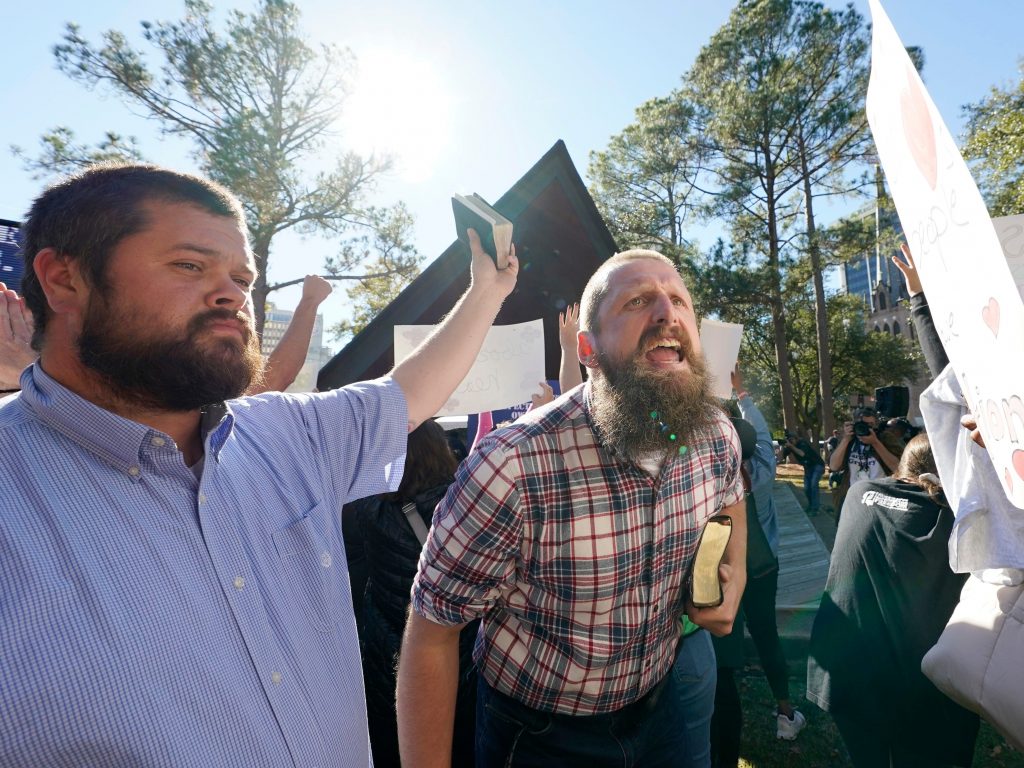
She added that the message has been repeated so much people believe it, even though it's not statistically true for many Christian traditions. Jehovah's Witnesses, the Church of Jesus Christ of Latter-day Saints, and evangelicals are generally more anti-abortion than other denominations, but Zeh said they're not the full picture.
"Our voices are drowned out by a very fringe belief," she said of Christians who support abortion rights.
Networks are popping up from Minnesota to Ohio
Ruth MacKenzie, a minister in residence at Kanter's church in Dallas, is one of the chaplains that has accompanied folks on the New Mexico day trips.
"Traveling with those women from Dallas to New Mexico, I was just so saddened and angered at what we are putting women through," she told Insider. "All of those women were doing a very intimate and hard thing all by themselves."
The days could last over 13 hours. The people seeking care walk into a room of strangers and undergo medical procedures without their loved ones by their side, but MacKenzie said she was struck by how the women supported each other.
MacKenzie is moving back to Minnesota next month and is coordinating with other clergy members to recreate some of what Kanter's group is doing. Unlike Texas, Minnesota is unlikely to outlaw abortion and will likely become a destination for abortion seekers, especially from North Dakota and South Dakota, neighboring states that have "trigger laws" in place.
"We will be like New Mexico is for Texas," MacKenzie said, adding that she's working with ministers in Minnesota to figure out how they can best support abortion clinics and people traveling to them from out of state.
Others are preparing for a post-Roe world by offering counseling and education on reproductive rights to religious communities. "The opposition likes to paint it as they have the market cornered on morality," Elaina Ramsey, the executive director of Faith Choice Ohio, told Insider.
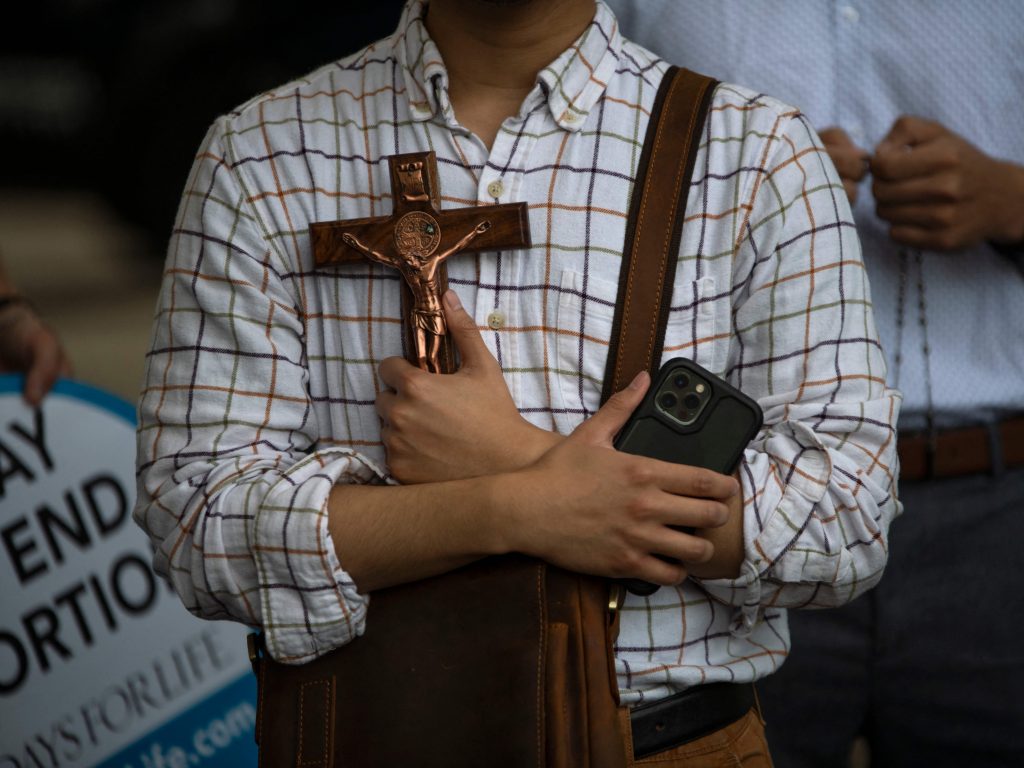
With a focus on education, advocacy, and counseling, the group provides resources and training for people of faith and clergy to learn about, discuss, and advocate for reproductive rights and justice.
Faith Choice Ohio is also launching a faith-based abortion fund that will help abortion seekers travel out of state for care. The fund will help pay for travel and other costs, like care packages or childcare, in addition to providing the seekers with clergy counseling.
"This is a deep part of the moral commitment that faith traditions have to serve their neighbors and show up in times of crisis and beyond," Ramsey said, though she acknowledged there can be a mistrust of religious groups doing this work.
"That, I completely understand because the opposition to abortion care often comes from religious zealots, people who claim a faith tradition but do not speak for me as a Christian," she said.
They often hear stories about how meaningful it is for people of faith to see religious leaders supporting reproductive rights and simply assuring them they do not think they are going to hell if they have an abortion.
"That's why I do this work. I want to reclaim this from all the anti-abortion people, the way that they've weaponized faith and religion," she said. "We're here to say that it doesn't have to be that way."
Have a news tip or story to share? Contact this reporter at [email protected].

